Enhanced Optical Communication Using VCSEL and FSO with Optical Amplifier and Filter Technologies
Problem Definition
From the literature survey conducted, it is evident that while free space optics (FSO) technology has shown great potential in the telecom industry due to its high data transfer capacity and cost-effectiveness, it faces significant limitations and challenges. The traditional FSO communication systems have been found to suffer from performance degradation caused by atmospheric and climatic factors, especially in long reach applications. Moreover, the susceptibility to noise when transmitting signals over longer distances has resulted in errors and decreased system performance. These obstacles highlight the need for advancements in FSO technology to overcome these limitations and improve overall system efficiency. Various researchers have proposed techniques to enhance the performance of FSO communication systems, aiming to address issues such as signal noise, signal strength amplification, and error reduction.
However, the existing literature indicates that these challenges persist and continue to hinder the optimal functioning of FSO systems. Therefore, there is a clear necessity for further research and development to innovate upon existing methods and develop a more robust and efficient FSO communication system that can effectively mitigate these shortcomings. This project seeks to build upon previous work and introduce novel enhancements that will eliminate noise, amplify signals, and improve overall system performance, particularly in long-distance communications.
Objective
The objective of this project is to develop a hybrid architecture that combines a Vertical Cavity Surface Emitting Laser (VCSEL) based Single Mode Fiber (SMF) link with Free Space Optics (FSO) transmission. This hybrid system aims to eliminate noise, amplify signal strength, and improve overall system performance, particularly in long-distance communications. By incorporating optical amplifiers and filters, the proposed method seeks to address the limitations of traditional FSO systems caused by atmospheric and climatic factors, signal noise, and errors over extended distances. The goal is to develop a more robust and efficient FSO communication system that can effectively mitigate these shortcomings and achieve reliable data transmission in the telecom industry.
Proposed Work
In order to address the research gap and enhance the performance of free space optics (FSO) communication systems, this project proposes a hybrid architecture that combines a Vertical Cavity Surface Emitting Laser (VCSEL) based Single Mode Fiber (SMF) link with FSO transmission. By incorporating optical amplifiers and filters into the system design, the proposed method aims to eliminate noise and amplify signal strength over longer distances, ultimately improving the overall performance of the communication system. The use of optical amplifiers will ensure that the signals maintain their integrity while traveling extended distances, mitigating the impact of atmospheric and climatic factors that can degrade system performance. Additionally, the implementation of optical filters will help to remove unwanted noise from the signals, thereby preserving the quality of data transmission even over great link distances. Through these enhancements, the proposed hybrid VCSEL-FSO system seeks to overcome the limitations of traditional FSO systems and achieve a more efficient and reliable communication solution for various applications in the telecom industry.
Application Area for Industry
This project can be applied in various industrial sectors such as telecommunications, internet service providers, military and defense, healthcare, and transportation. In the telecom industry, the proposed hybrid VCSEL-FSO system can significantly improve data transfer capabilities and cost-effectiveness, addressing challenges such as last-mile connectivity and expensive laying of optical fiber cables. For military and defense applications, the system can provide secure and reliable communication channels even in harsh environmental conditions. In healthcare, the system can enhance telemedicine services by ensuring high-quality and uninterrupted data transmission. In transportation, the system can improve communication between vehicles and infrastructure, enhancing safety and efficiency.
Overall, implementing the proposed solutions can lead to enhanced performance, increased reliability, and cost savings across different industrial domains.
Application Area for Academics
The proposed project on a hybrid VCSEL-FSO communication system has the potential to enrich academic research, education, and training in the field of free space optics (FSO) and optical communication systems. This project addresses the limitations of traditional FSO systems by incorporating optical amplifiers and filters to enhance system performance over longer distances and mitigate the effects of noise. Academically, this project can provide valuable insights into the design and implementation of advanced communication systems that are resilient to atmospheric and climatic factors. Researchers in the field of optical communication and telecommunication can leverage the methodologies and algorithms used in this project to further their research on improving data transfer efficiency and reliability in FSO systems. Moreover, MTech students and PhD scholars can use the code and literature of this project as a reference for developing innovative research methods, simulations, and data analysis techniques within educational settings.
By experimenting with the hybrid VCSEL-FSO system and exploring its applications in real-world scenarios, students can gain practical knowledge and skills in optical communication technology. The integration of VCSEL lasers, optical amplifiers, and Bessel optical filters in the proposed system opens up possibilities for exploring new technologies and research domains in optical communication. Future research can focus on optimizing the performance of the hybrid system, exploring different filter configurations, and investigating the impact of varying environmental conditions on system performance. Overall, this project has the potential to contribute towards advancing academic research, enhancing education and training in optical communication systems, and fostering innovation in the field of FSO technology.
Algorithms Used
The project proposes a hybrid model incorporating VCSEL lasers and Free Space Optics (FSO) transmission to improve communication system performance. The VCSEL laser plays a crucial role in emitting light for data transmission, while the optical amplifier amplifies signals for efficient transfer over longer distances, reducing the impact of noise on system performance. The Bessel optical filter limits receiver optical bandwidth and removes unwanted noise from signals, enhancing the system's Q-factor even at greater link distances. These algorithms collectively contribute to achieving the project's objective of improving communication system efficiency and accuracy.
Keywords
free space optics, FSO, telecom industry, data transfer, cost-effectiveness, last mile problem, optical fibre cables, FSO communication systems, atmospheric factors, climatic factors, noise, errors, hybrid model, vertical cavity surface emitting laser, VCSEL, optical amplifier, optical filters, signal strength, optical signals, receiver optical bandwidth, optical filtration techniques, Q-factor, link distances, Single Mode Fiber, SMF, Passive Optical Network, PON, Long-Wavelength VCSEL, Standard Single Mode Fiber, SSMF, Quality Factor, Optical Communication, Optical Link, Signal Quality, Hybrid Optical Transmission, Fiber Optics, Communication Performance, Optical Networking, PON Applications, Optical Signal Processing, Communication Technologies.
SEO Tags
free space optics, FSO communication systems, optical amplifier, optical filters, noise elimination, signal amplification, optical filtration techniques, Q-factor enhancement, hybrid VCSEL-FSO system, vertical cavity surface emitting laser, long reach applications, optical communication, signal quality, optical networking, communication technologies, fiber optics, hybrid optical transmission, optical signal processing, research scholar, PhD student, MTech student, communication performance, passive optical network, PON applications, optical link, optical communication system, optical networking, long-wavelength VCSEL, standard single mode fiber, SMF, quality factor, optical communication, optical networking, communication technologies
| Shipping Cost |
|
No reviews found!













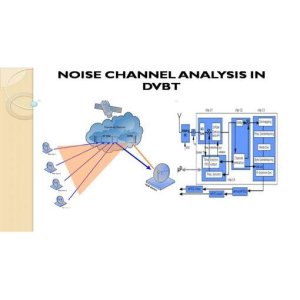
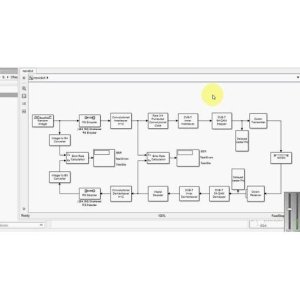
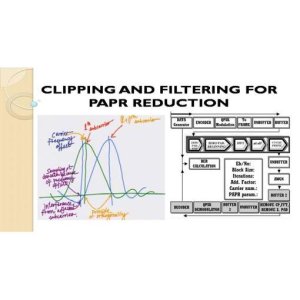
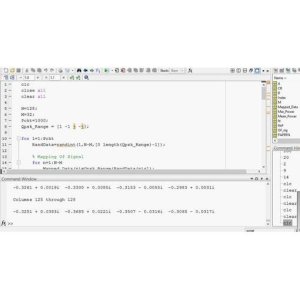
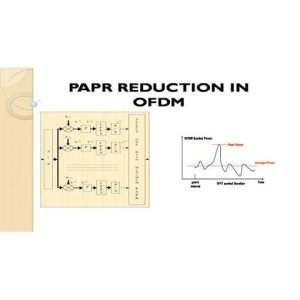
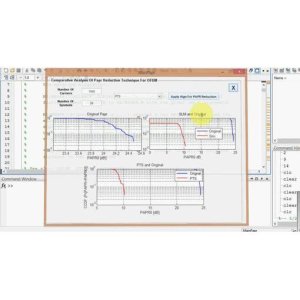
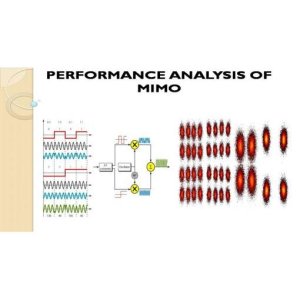
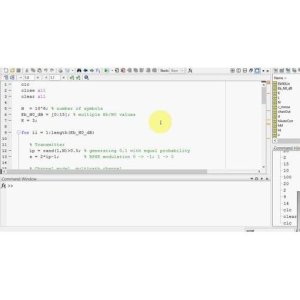
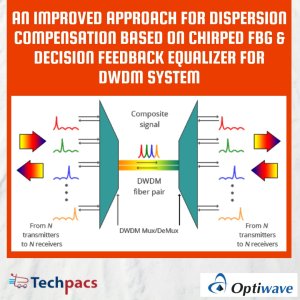































No comments found for this product. Be the first to comment!